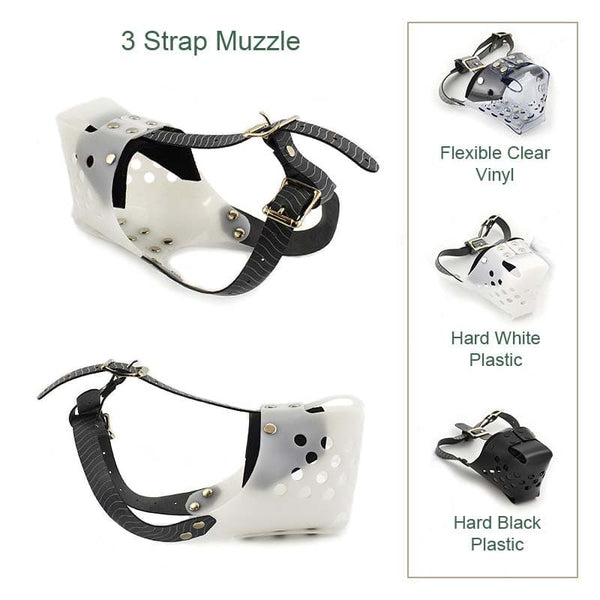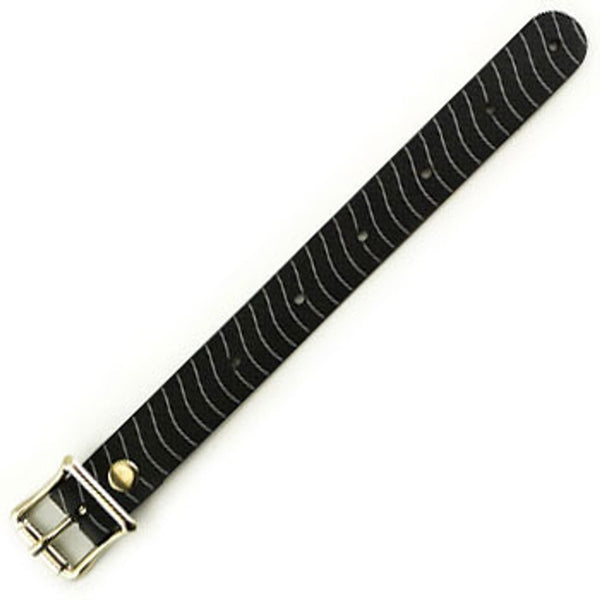Dog Snarling: What To Do When Your Dog Growls At You
By Jess Rollins
Copyright Info

This article was inspired by the work of Amy Cook at shy-k9's yahoo group.
Grrr... When a dog growls at you, are you tempted to sternly tell him "No!"? It seems like the right thing to do and many trainers, (even famous ones!), will tell you to do just that. The simple fact is, however, that you can't reward or punish emotions and have it work the way it does for other behaviors like teaching your dog not to steal food off of the counter. If you punish your dog when he steals your dinner, he may stop doing that, but if you punish your dog for snarling, you may get more growling, or worse, a bite. This is because fear or anxiety does not respond to rewards and punishments in the same way that behaviors do. In fact, it's just the opposite! If your dog is communicating to you that he is uncomfortable by growling, for example, it behooves you to help him to feel better about that thing so that he has less to growl about.
Just say "No!?" Let's say that you do yell at your dog every time your dog snarls at you. What do you think he would learn? Probably that you are kind of scary and the growling or other defensive behavior may increase. Or your dog may stop growling which looks deceptively like you solved the problem, but he is probably still uncomfortable and now less able to communicate his discomfort. Teaching your dog not to growl by punishing the growl can make for a dangerous situation since your dog may feel that his only way left to communicate discomfort is by biting (and "without warning").
Just say "Cheese"?! Now let's say you reward your dog every time he growls at you by feeding a treat and then leaving him be. What would happen? Would your dog growl at you more? Have you trained him to growl? Most likely your dog will start to growl less as he anticipates food and safety with your approach instead of feeling fear and worry. If you really wanted to train your dog to growl it would actually be pretty difficult to do. The trained growl would cease to have meaning as a warning signal in that context and would now be transformed into a happily offered "trick", (like the dog's face in the above picture!). So, by rewarding the growl, you have actually caused your dog to stop growlng because he feels happy. Pretty cool, huh!?
A free tip for husbands everywhere.. Here's an example from the human perspective to help you to understand about how to change emotional states in your dog. Imagine you have gone to bed early because you don't feel well and want to be alone and your husband comes in to talk to you about bills. You snap at him to leave you alone and he becomes angry and tells you off. Would his reprimanding you make you less likely to be snappish next time he comes to talk to you about household travails? Next time it happens, you might try to keep your annoyance to yourself or you might scream at him! Either way, your underlying emotion of anger at the intrusion would most likely remain unchanged by the fact that your husband "punished" you with the reprimand. What if instead, upon his entering the room, you said that you wanted to be alone and he expressed sympathy, brought you a cup of tea and then left. How would you then feel the next time he enters your "sanctuary"? You would probably be less likely to snap at him because you would be anticipating kindness instead of intrusion and anger.
Easy does it.. But there is a bit more information that is helpful to know about changing the emotional state of your dog. If you are trying to help your dog feel better about something he is upset about, say, having someone approach when he has a yummy chew bone, you will want to go slowly enough in your training so that your dog does not get overwhelmed and bite. To change your dog's underlying emotions about your approach, it is best to begin by approaching just close enough so that your dog notices your presence and then toss a treat and leave. After your dog is responding to your approach him with a happy tail wag, you can begin to come closer. If, by contrast, you were to barge in too close and feed your dog with a treat after he snaps at you, you may still have some success with teaching him you are not a threat, but the process will go much slower due to the stress involved. It is much more effective to go at a pace slow enough that your dog is actually happy with the current step before you move to the next one.
Okay to say "it's okay"? What about trying to comfort your dog when he is upset with kind words and petting? Sure! Why not? The only thing to be careful about is that your voice does not sound worried or nervous. Otherwise you may end up freaking your dog out more instead of calming him.
Before you begin training.. Next time you tell yourself, "I need to teach my dog not to do ___", it is a great idea to first ask yourself if the behavior you would like to change is emotionally motivated. If it is, you will have the most success by teaching your dog that the thing he is uncomfortable about now actually predicts his favorite things like food and toys.
The bottom line is that emotion is affected by association with experiences, and emotional responses, like growling, biting and fearful barking, cannot be trained away like we can for other behaviors, like barking for attention or chewing furniture. If you punish a growl with a reprimand, you are adding something unpleasant on top of an already unpleasant feeling, which will only make your dog feel worse. If instead, you teach your dog to look forward to the things he was previously afraid of, your dog will stop needing to growl!
Happy Training! We welcome your feedback on this article and if you find it helpful we would be honored if you shared the link with your dog loving friends or considered supporting our small business by becoming a customer.
~ Jess, Owner and Dog Trainer












My normally sweet dog has had two episodes of snarling and showing his teeth, and both times were familiar experiences. I have had him since 8 weeks old, he exercises 2 1/2 hours a day and has always been compliant and friendly. The first incident was at his groomer, and I ignored it because he has never been aggressive. The second time was when I tried to encourage him to get out of car by tugging his collar. I am extremely confused and alarmed. What has happened to my healthy pampered dog?
My 3 year old service dog has been so kind gentle observant and has even saved my life. He pays attention to me in public. We go everywhere.
6 weeks ago we were at the hospital for appointments.
Leaving the hospital we were charged by another dog.
Now every time he see another dog he pulls on his leash and charges and snarls.
I know he is in a deeper protection mode. But he can’t be out and about acting like this.
He used to pay attention to me exclusively. Now he is distracted.
Pet Expertise response: It sounds like he found that experience really unsettling! You may need to do some refresher work with a local trainer to help him regain confidence and concentration. Of course we have some products that may be useful to your situation (muzzles, treat bags, DAP calming collars, etc.) but most of all it sounds like he’ll need some time and assistance to recover from the experience.
We adopted lhasa apso that came from a foster/horder that had 66 dogs taken by animal control. He is a snapper.He bites from fear and it took me a while to figure out how to work with him. When I realized that the situation reminded me of the opening parts of the movie The mirale worker I began to see results with a CALM/firm/steady approach,comforting him in situations where he appeared fearful.I haven’t been biten in weeks.Today I came across this article and it helps clarify my understang of what I have been trying to do to help Shadow.
My dog is almost 4. Out of nowhere she started growling. Cuddling in bed and you touch her softly she begins to growl – day or night. We’ve increased exercise, we do not punish her for this behaviour, we take her warning and try to calm her using a soft gentle voice without touching her. But it hasn’t stopped.